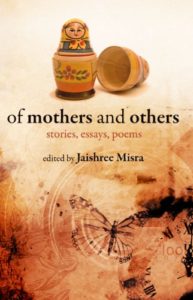Lunch with FT: 52 Classic interviews
Lunch with FT: 52 Classic interviews published by the Financial Times and Penguin Books to celebrate 125 years of the paper. It consists of interviews with legendary people who have had lunch with the FT from 1994. Lunch with the FT was conceived by Max Wilkinson, editor of the Weekend FT. He thought the new interview format would provide a ‘ray of sunshine’ in the paper. The rules were straightforward. The guest/interview would choose the restaurant, and the FT would foot the bill. The interviews were conducted by the FT’s global network of columnists and correspondents.
The book consists of interviews with an international list of Who’s Who — Michael Caine, Angelina Jolie, Jeff Bezos, Mo Ibrahim, George Soros, Domenico Dolce and Stefano Gabbana, Jennifer Paterson, Saif Gaddafi, Angela Merkel, Vaclav Havel, Jacques Attali, Imran Khan and James Watson to name a few. It is the kind of book you dip into, to learn about the human side of a person who happens to be influential in their sphere of work. We tend to put achievers on a pedestal but a freewheeling conversation over a good lunch can make a person reveal aspects of their personality that are otherwise well concealed under their professional demeanour. For instance the conversation with James Watson, the man who discovered DNA, has to be one of the most controversial ones. From the interview, I quote:
” From universal DNA fingerprinting to bizarre manipulations of animal DNA, Watson is prepared to endorse a range of uses for the technology that make make liberals blanch, ‘If everyone’s genetic fingerprint were taken,’ he observes, ‘it would take away from our liberty to commit crime.’
More controversial still, Watson argues that if technology permits it, women should be able to abort homosexual foetuses. ‘Most women want grandchildren and do not say with glee that their son is homosexual,’ he says.
This kind of full frontal assault on political correctness has got Watson into hot water in the past. IT is easy to see how his willingness to discuss the ethical vanishing point of genetics has sometimes obscured a genuinely humanitarian desire to limit human suffering.”
As the interviewer goes on to add, “Watson’s impatience to make genetics practical was heightened by the illness of his son, Rufus, who suffers from autism thought to be epilepsy of the thalamus. It was around the time of his son’s diagnosis in 1986 that Watson was installed as the chief cartographer in charge of mapping the human genome. On the subject of his son, who is now in hospital, the ever-effusive scientist starts to clam up. ‘I do not see the need for immortality. But I do have a sick son in hospital. If we knew enough science we could help him. Fame is irrelevant.’ ”
According to the editor, Lionel Barber some excellent interviews that failed to make the cut. These were Paulo Coelho talking about prostitutes and the Pope with fellow author A.N.Wilson or Roger Waters of Pink Floyd comparing himself to Shakespeare and Woody Guthrie — and ordering a piece of GBP75 piece of gravadlax. To the list I would also add the interview with Robert Silvers, editor, NYRB ( http://www.ft.com/intl/cms/s/2/091ba1b6-6576-11e2-a3db-00144feab49a.html#axzz2OfbxeZqs ) that was conducted in Jan 2013. Probably too late to be included in the commemorative volume.
For some more about these lunches read FT columnist Matthew Engel on the 18th anniversary of the lunch: http://www.ft.com/intl/cms/s/2/930857a0-8d3d-11e1-8b49-00144feab49a.html#axzz2Ol2aaFE8 . In India, the only paper that I know of doing a similar series of interviews is the Hindu.
Verdict: I liked reading this book, probably one of those volumes that will remain in my personal library since it captures a moment in time well. As for instance the interview with a young Jeff Bezos or the conversation with Mo Ibrahim, soon after he had sold his telecom business and was on the verge of setting up the Mo Ibrahim Prize for Achievement in African Leadership, which awards a $5 million initial payment, and a $200,000 annual payment for life to African heads of state who deliver security, health, education and economic development to their constituents and democratically transfer power to their successors. My only grouse is that there is not a single date printed of when the interview was conducted or published.
2 April 2013







